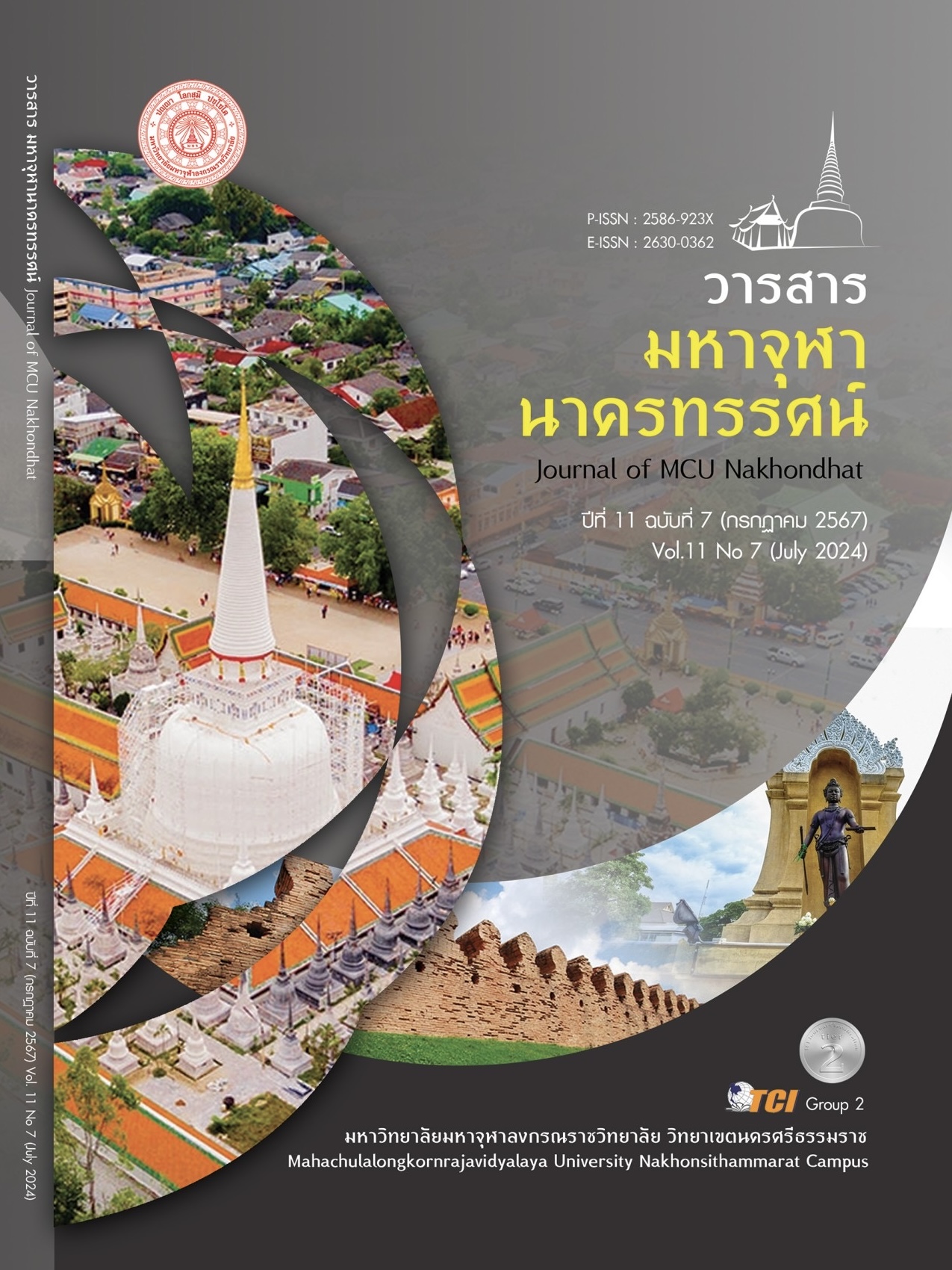กลยุทธ์การจัดการทรัพยากรมนุษย์ในยุคดิจิทัลของมหาวิทยาลัยกวางสี
Main Article Content
บทคัดย่อ
การวิจัยครั้งนี้มีวัตถุประสงค์เพื่อศึกษากลยุทธ์การจัดการทรัพยากรมนุษย์ในยุคดิจิทัลสำหรับมหาวิทยาลัยกวางสี โดยใช้วิธีวิจัยแบบผสมผสาน ประชากรที่ใช้ในการวิจัย ได้แก่ กลุ่มผู้บริหาร จำนวน 375 คน เลือกแบบเฉพาะเจาะจง ซึ่งเป็นผู้บริหารในมหาวิทยาลัยของรัฐ 10 แห่ง ในกวางสี เครื่องมือที่ใช้ในการวิจัย ได้แก่ แบบสอบถาม ที่ผ่านการวิเคราะห์ SWOT และการสนทนากลุ่ม โดยใช้วิธีเลือกแบบเฉพาะเจาะจง เครื่องมือวิจัย ได้แก่ แบบสอบถามประมาณค่า 5 ระดับ มีความเชื่อมั่นอยู่ที่ระดับ .91 สถิติที่ใช้การวิเคราะห์ข้อมูล ได้แก่ ค่าร้อยละ ค่าเฉลี่ย ส่วนเบี่ยงเบนมาตรฐาน และการวิเคราะห์เนื้อหา ผลการวิจัย พบว่า สถานการณ์ปัจจุบันของกลยุทธ์การจัดการทรัพยากรมนุษย์ในยุคดิจิทัลของมหาวิทยาลัยกวางสีทั้ง 6 ด้าน อยู่ในระดับสูง ( = 3.63) เมื่อพิจารณาผลการวิจัยด้านต่าง ๆ มีค่าเฉลี่ยสูงสุดจนถึงต่ำสุด ดังนี้ ค่าเฉลี่ยสูงสุด คือ การบริหารเงินเดือนและสวัสดิการ (
= 3.66) รองลงมา คือ การบริหารการจัดหางาน (
= 3.65) และการวางแผนทรัพยากรบุคคลมีค่าต่ำสุด (
= 3.47) ทั้งนี้ แนวทางการปรับปรุงการจัดการการศึกษาสู่ความเป็นสากลในมหาวิทยาลัยกวางสีสาธารณรัฐประชาชนจีน ประกอบด้วย 1) สถานการณ์ปัจจุบันของการจัดการทรัพยากรมนุษย์ในยุคดิจิทัลของมหาวิทยาลัยกวางสีอยู่ในระดับสูง ซึ่งประกอบด้วย การบริหารเงินเดือนและสวัสดิการ การบริหารงานสรรหาบุคลากร การประเมินผลการปฏิบัติงาน การฝึกอบรมและการพัฒนา การบริหารพนักงานสัมพันธ์ และการวางแผนทรัพยากรบุคคล 2) สำหรับกลยุทธ์การจัดการทรัพยากรมนุษย์ในยุคดิจิทัลสำหรับมหาวิทยาลัยกวางสี ได้แก่ การปรับปรุงการวางแผนทรัพยากรมนุษย์ การพัฒนาการจัดการสรรหาบุคลากร การส่งเสริมการฝึกอบรมและการพัฒนา การสนับสนุนการประเมินผลการปฏิบัติงาน การยกระดับการบริหารเงินเดือนและสวัสดิการ และการแก้ปัญหาการบริหารพนักงานสัมพันธ์ตามกลยุทธ์ขององค์กร
Article Details

อนุญาตภายใต้เงื่อนไข Creative Commons Attribution-NonCommercial-NoDerivatives 4.0 International License.
เอกสารอ้างอิง
Bai, C. (2020). Management practice and academic research formula. Nankai Management Review, 23(6), 2-11.
Chen, H. & Fu, L. (2021). "Internet+" Times Higher Education Management Model Innovation. Chinese Journal of Multimedia and Online Teaching (Published in the early Lottery), 11(9), 142-144.
Chen, Y. (2022). Digital transformation of human resources management of modern enterprises. China's collective economy, 15(26), 119-120.
Chen, Y. I. (2022). Exploration on the dimension of enterprise human resource management in the era of big data. Metallurgical management, 22(3), 7-9.
Cui, G. et al. (2020). Informatization human resources management improvement of organizational performance: Case research based on employee empowerment. Chinese human resources development, 37(3), 78-92.
Cui, J. & Wang, Q. (2022). Effectively avoid the risk points of local university teacher recruitment. human resources, 6(10), 48-51.
Deng, G. & Li, M. (2020). Education's artificial intelligence ethics issues and ethical principles discusses. Electrifying education research, 41(6), 39-45.
Feng, X. M. (2022). The innovation path of college education management model under the concept of human-based people-Evaluation of "International Research on Regional Higher Education". China Education Journal, 12(1), 116-118.
Genqiang, L. I. et al. (2022). Developed human resource management practices and employees' active innovation behavior: Perspective of information processing theory. Scientific and technological management research, 42(7), 163-170.
Gong, Y. (2021). In the context of "Internet", the innovation and revelation of higher education management models. Journal of Changchun Normal University, 1(12), 123-125.


